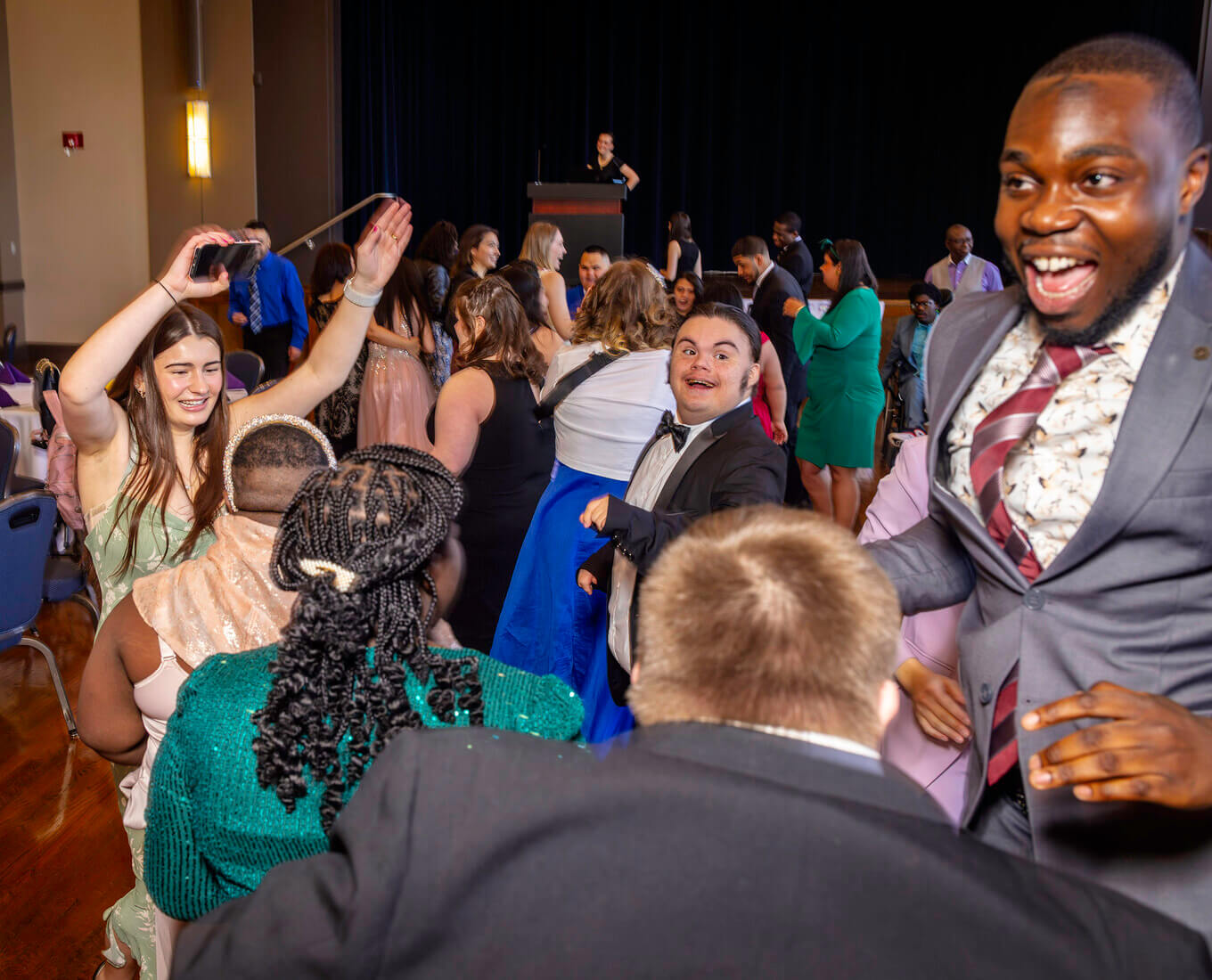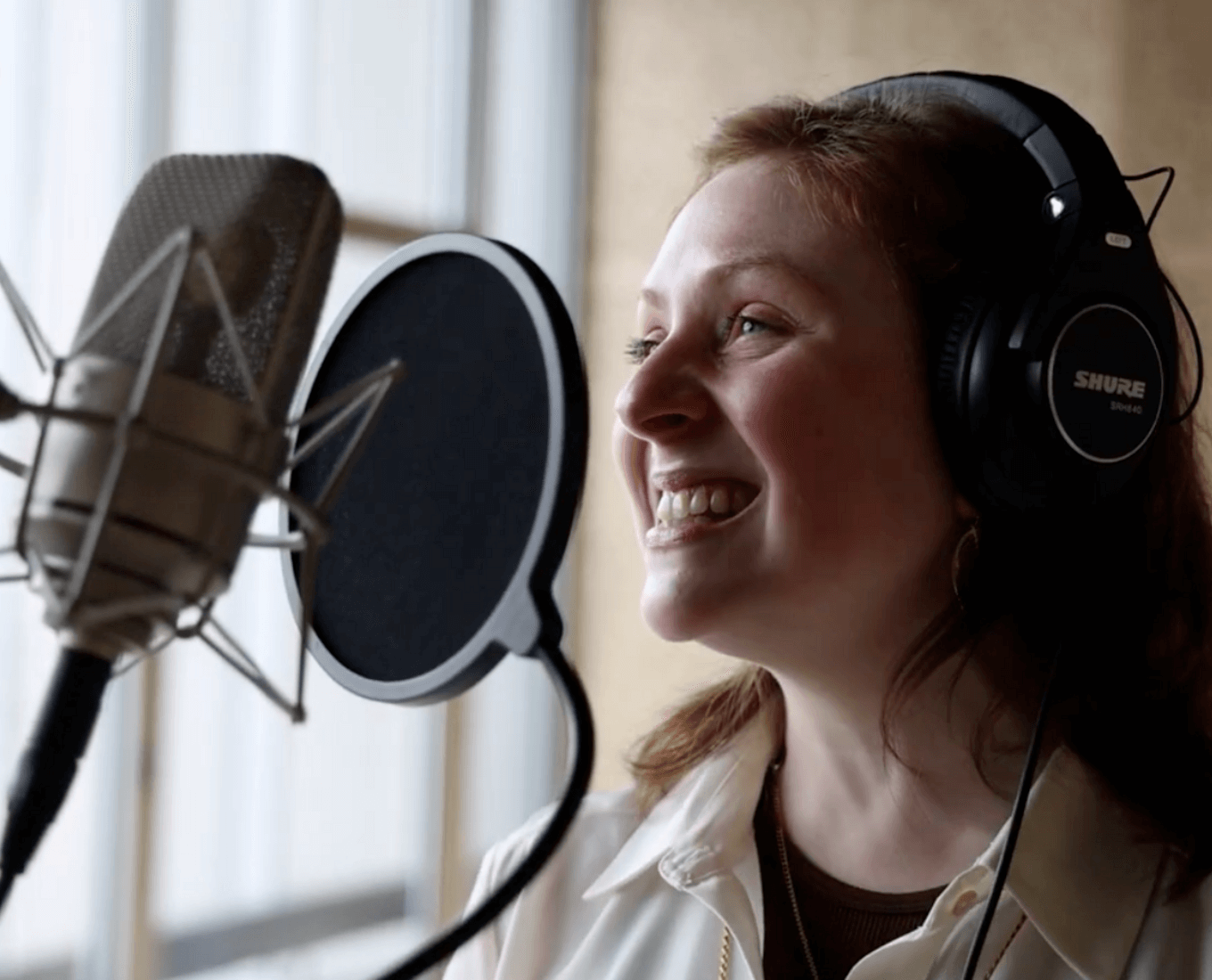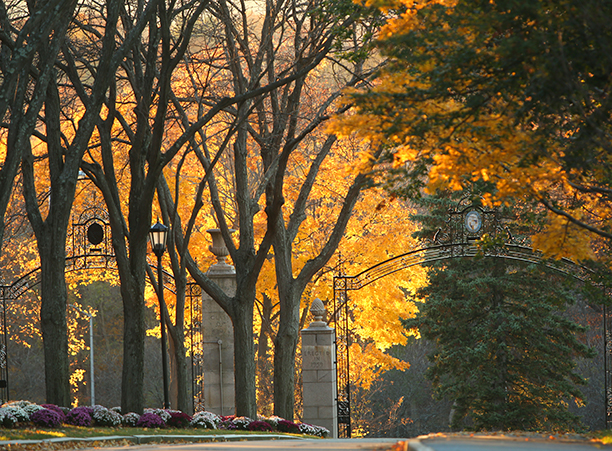
During fall break, the College of the Holy Cross found its students immersing themselves in unique opportunities as they paused from daily academics to try something new.
From Oct. 9-16, the College offered programs for service and hands-on learning. The opportunities for students included: Ciocca Office of Entrepreneurial Studies (COES) Finance Boot Camp, the new Global Supply Chain Management Workshop, Fall Break Immersion Programs and Spiritual Exercises.
COES-Finance Boot Camp
COES hosted their annual Finance Boot Camp over the break to provide 30 students interested in pursuing careers in finance a snippet of life on Wall Street. The four-day program consisted of on-campus sessions and an overnight trip to New York City, where Holy Cross alumni hosted students at Deutsche Bank, Barclays, J.P. Morgan and Goldman Sachs.
The program gave the select group of students the opportunity to garner interview preparation skills that will help them succeed after college. Jaina Maher ‘18, an economics and political science double major, and participant in COES since her first year on campus, explained that the skills acquired during this immersion are beneficial to students regardless of the field they choose to pursue.
“We were able to hear about different options within finance that others might not have been aware of prior to the program,” said Maher. “We participated in fundamental marketing knowledge in preparation for interviews as well as skills, tools and tips given by the alumni that might increase our appeal as candidates.”
This opportunity also provided students with numerous networking resources in the world of finance. Maher noted the biggest takeaway from this experience was the chance to speak with alumni in the field.
“We were able to meet and speak with alumni that work on Wall Street. Being able to hear from alumni who are happy and willing to help was encouraging [for me],” said Maher. “Not only were we able to establish connections with them, but it made me more comfortable with the idea of networking in general, whether with hosts or other firms, moving forward.”
Delaney Wells ‘20, an undeclared first-year student, echoed Maher’s sentiment.
“Finance Boot Camp (FBC) made my future seem more achievable to me. As a first-year student, I felt confused and uncertain about how to make connections with alumni and how to get experience learning about different career paths, specifically on Wall Street,” said Wells. “FBC provided me with the chance to learn more about the finance world through conversations with alumni who know how to navigate the industry. I am now equipped with networking skills and relationships that I can rely on for guidance and assistance in the future.”
COES-Global Supply Chain Management Workshop
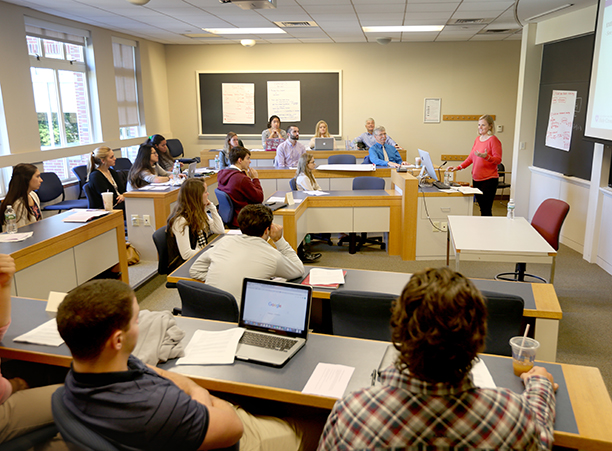
COES offered its inaugural workshop titled “Global Supply Chain Management.” Through the workshop, 24 students were given the opportunity to partake in a two day, alumni-led workshop that helped them acquire hands-on experience to understand how the business field works. Students were exposed to the political, cultural and ethical issues inherent to managing a global supply chain.
The newly implemented workshop is part of the COES “certificate of readiness,” in which students from any major or class year are tasked with completing “five milestones”—one of those milestones includes completing four business-oriented workshops.
Alumni presenters included William Leisman ’72, international business consultant for Liesman Consulting; Peter Mondani ’79, P14, senior human resources leader-global risk management at General Electric Co.; Ted Pidcock ’88, founder and manager of an apparel company, Chillybears; and Cynthia White ’95, president and lead consultant at the Ceatro Group.
The workshop, which was in its first year, was met with positive feedback. Carter Mitchell ’19, a political science major, noted the constant interaction with alumni and personal growth as positive attributes to the experience.
“The Global Supply Chain workshop was a great opportunity to learn about the most effective and efficient processes for businesses in planning, managing and the execution of their products,” said Mitchell. “A unique aspect of the workshop was the constant interaction with alumni. Through their instruction in the workshops and interactions outside of the classroom, they shared insight and experiences of the factors, risks and outcomes that are involved with the Global Supply Chain. By learning about the key strategies of business decisions in the supply chain, the workshop allowed me to become a more well-rounded thinker, and was a beneficial stepping stone to completing my COES milestones.”
Agape Community Immersion
Students who wanted to take a breather from Worcester’s urban bustle and reconnect with nature, as well as their spirituality, found an outlet at the Agape Community in Ware, Mass. The immersion program incorporated sustainable living and environmental awareness with periods of prayer and reflection based in the Catholic faith. The atmosphere opened a dialogue on how participants can live a nonviolent lifestyle, and offered reflection on contemporary issues.
Students worked with Agape community members over the course of the week to prepare a community center for the homeless. The food used to feed both students and, later, those in need, was grown by the previous year’s Holy Cross group. While reflection and spiritual contemplation were important aspects of the program, the day-to-day labors needed to keep the community running kept the students busy. They gathered and chopped firewood, canned fresh herbs and worked in the community gardens.
Worcester Immersion
For students who wished to learn ways to engage with the city and the local community while on campus, the Worcester immersion provided participants with a balanced perspective of the city. Ten students and two student leaders resided at the Concordia Lutheran Church on Murray Avenue in Worcester, where they shared nightly reflections, served food to the community and volunteered with a local food pantry. The group also visited other religious centers, including the Boundless Way Zen Community Center, a Buddhist temple in Worcester, and the Worcester Islamic Center, a mosque in the city.
In addition, students met with Che Anderson ’11, project manager and staff assistant to City Manager Edward M. Augustus Jr., and Yvette Dyson, the executive director of the Worcester Common Ground, to further expand their knowledge of the day-to-day activities of the city.
Marty Kelly, associate chaplain and advisor for Student Programs for Urban Development (SPUD), explained that the experience allows first-year students to form a closer bond with the city and their classmates.
“The program provides students the opportunity to form a small community with one another and build lasting friendships,” said Kelly. “This allows students to feel more at home while on the Hill and more at home in their community.”
Senior leader Brian Toner ‘17, a mathematics major, noted that the immersion allows first-year students to observe the resources Worcester possesses and see where they are able to contribute.
“Three years ago, the trip introduced me to the city that I would call home for the next four years, and the city has never disappointed. I wish more students had the opportunity to do the trip to be able to explore Worcester and learn more about the city and its people,” said Toner. “We really are blessed to be in such an awesome place, but many students may not get the chance to really experience Worcester beyond Mt. St. James.”
L’Arche Immersion
An international foundation guided by compassion and community, L’Arche was founded in the small French village of Trosly-Breuil in 1964. Jean Vanier, guided by the Dominican priest Father Thomas, invited Phillippe Seux and Raphael Simi, two people with intellectual disabilities, to live with him in his home. Rather than institutionalization, Seux and Simi were given the opportunity to live side-by-side with Vanier. Their disabilities were not treated as isolating differences that divided their lifestyles from Vanier’s. Instead, Vanier sought to build a community of cohabitation in which lives could be shared rather than alienated from one another.
Holy Cross students offered their time at the L’Arche Boston North community in Haverhill, Mass., a home for the developmentally disabled where they form transformative relationships with one another, during their fall break. Karla Keppel, assistant chaplain and director of domestic immersion, said this opportunity allowed students to become part of a community where they completed everyday activities and tasks, and interacted with the residents.
“There is radical hospitality, and students eat, pray and walk with these individuals in all aspects of life for the week,” said Keppel.
Spiritual Exercises
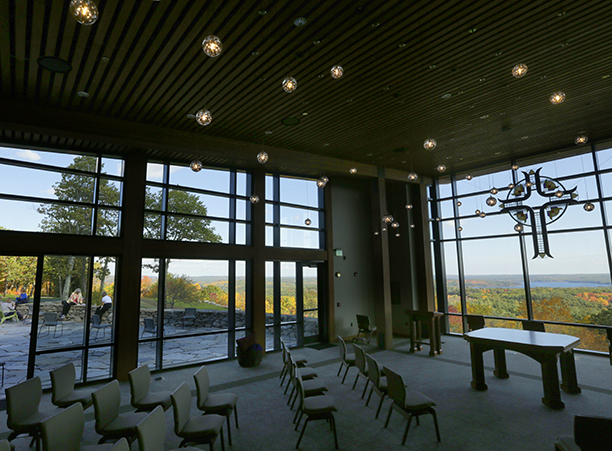
For students seeking quiet contemplation and reflection as a break from their busy lives on Mount St. James, the chaplains’ office offered the fall Spiritual Exercises at the new Thomas P. Joyce ‘59 Contemplative Center in West Boylston, Mass. An adapted version of the Spiritual Exercises of St. Ignatius of Loyola, founder of the Jesuits, this five-day silent retreat is an opportunity for contemplation and prayer.
While the focus was on silence and internal meditation, students met with a spiritual adviser once a day to ask questions to help guide them and discuss reservations they may have had about the exercises. Although they are steeped in the Catholic faith, with a morning examen prayer to reflect on the past 24 hours and become more aware of the day ahead, the exercises are for students of all faiths. Structured talks with varying topics were given each day, as well as readings students could reflect on during their free time.

